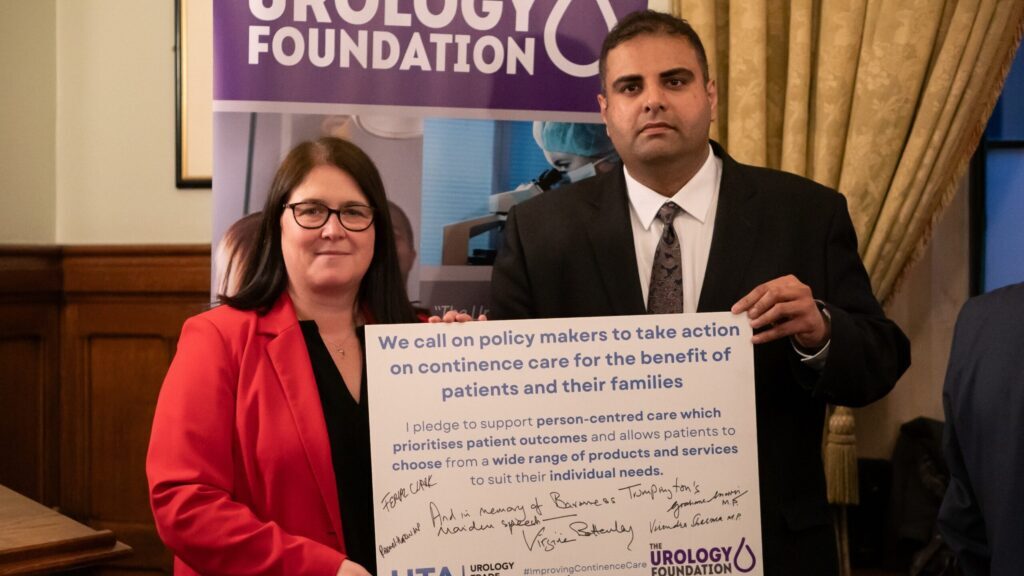Care sector responds to vaccine U-turn speculation
Health and social care secretary Sajid Javid has announced that regulations making vaccines a condition of deployment for health and social care staff are set to be revoked, subject to public consultation and parliamentary approval.
Javid said: “Balanced against the clear benefit [of vaccination] was the risk that there would always be some people who would not do the responsible thing and choose to remain unvaccinated and, in doing so, choosing to walk away from their jobs in health and care. Despite it being their choice to leave their jobs, we have to consider the impact on the workforce in NHS and social care settings, especially at a time when we already had a shortage of workers and near full employment across the economy.”
In December, Javid argued the weight of clinical evidence in favour of vaccination as a condition of deployment outweighed the risks to the workforce. Delta was the dominant variant when vaccination as a condition of deployment was enforced, but with Omicron seen in most cases, the government is now reviewing Covid-19 measures.
“Given these dramatic changes, it is not only right but responsible to revisit the balance of risks and opportunities that guided our original decision last year,” added Javid. “While vaccination remains our very best line of defence against Covid-19, I believe it is no longer proportionate to require vaccination as a condition of deployment through statute.
“I have always been clear that our rules must remain proportionate and balanced – and of course, should we see another dramatic change in the virus, it would be responsible to review this policy again.
The Department of Health and Social Care reported: “Two vaccine doses against Omicron also become less effective over time, which is why the Get Boosted Now campaign was launched in December. The latest data from the UK Health Security Agency shows boosters are around 90% effective in preventing hospitalisation from Omicron soon after they are administered.”
The DHSC said, with more than 37 million boosters administered in the UK, coupled with the lower levels of hospitalisation and mortality, the risk of presentation to emergency care or hospital admission is approximately half that of Delta.
“As a result, the government has re-examined the policy as it considers how best to achieve public health and safety with the minimum number of restrictions or requirements on people’s lives,” the report continued. “The balance of opportunities and risks of the policy has now changed with the dominance of Omicron. The booster rollout has been successful, and workforce challenges remain.”
While the legal requirement on deployment is set to be revoked, the Department of Health and Social Care said that those working in health and social care still have a professional duty to get vaccinated and Get Boosted Now: “The government will work closely with Royal Colleges and professional regulators to strengthen guidance, and consult on updates to the Department of Health and Social Care’s Code of Practice for regulated providers to strengthen the requirements in relation to Covid-19, which applies to all CQC registered providers of all health and social care in England.”
Responding to the government’s announcements, National Care Forum chief executive Vic Rayner said that the NCF and its members have been 100% behind the drive for vaccination and booster take-up throughout the pandemic, but have consistently challenged the argument to force people to be vaccinated, finding the best results to come from “persuasion and encouragement, with good information and support to address people’s concerns respectfully and to encourage vaccine take-up.”
“The government has consistently chosen to ignore the advice of those who work in the care sector, and has steamrolled through a chaotic policy with long-term detrimental impacts on those who work in care homes and receive care and support,” continued Rayner. “Care homes have been the unwitting guinea pigs through the implementation of this policy, and the impact on people must not be swept under the carpet.
“In October last year, strong words were spoken by the health and social care secretary telling social care workers ‘if you cannot be bothered to go and get vaccinated then get out and go and get another job’. The lack of regard and respect for care workers was felt strongly, and these were words that contributed to over 30,000 care workers leaving the sector and contributing to the worst staffing crisis we have seen on record in social care.
“The government must apologise to the social care staff who have lost their jobs and to the people receiving care and support who have had to watch relationships they cherish being severed abruptly as a direct result of this policy, and to the social care providers who have invested significant time, energy and resources into implementing a chaotic policy that is now considered obsolete.
“The decision to consult further on the introduction of this mandate across the wider health and care sector is welcome, but it is vital that the government learns from this experience and makes policy decisions that are well thought-through and takes seriously the long-term impact it has on people’s lives. This latest announcement feels like one based purely on expediency with regards to the predictable effect on levels of staffing in health services, without taking any account of the significant impact and the disastrous damage that has already occurred.”
Representative body for independent providers of adult social care Care England has criticised the government for its handling of mandatory vaccination in health and social care.
“This policy was imposed upon the care home sector without due consideration or support,” said Care England chief executive officer Prof Martin Green. “Sadly, it has had unintended consequences with staff leaving the sector, some to the NHS, thus exacerbating the pre existing recruitment and retention challenges leading to disruption to the delivery of health and care services”.
Access Social Care, a charity providing free legal advice and information to the social care sector, welcomes the predicted U-turn on mandatory Covid-19 vaccinations for NHS and social care staff, however chief executive officer Kari Gerstheimer says it is too late, with the National Care Association has reported that the sector has lost about 40,000 staff.
“The Government ignored the warning signs from the care sector about how the mandate would deepen the staffing crisis in November and ploughed ahead with the policy,” added Gerstheimer. “Social care has been used as the trial run for the NHS. Social care staffing must be treated as seriously as NHS staffing.
“Recruitment and retention problems in social care existed before the pandemic, but the Government’s mandatory vaccination and Brexit policy has driven the sector to near breaking point. Most of us agree that we want our loved ones to be cared for by people who are vaccinated, but in some parts of the country the choice is between care from someone who is unvaccinated or no care at all.”
Gerstheimer said that exhausted family carers are “on their knees” because they are unable to recruit support. “In some instances, social care providers are having to hand back contracts because they can’t find staff,” she added.
“This impacts people’s lives: older and disabled people are going without vital care needed to maintain a basic quality of life. Black, Asian and minority ethnic staff have experienced the greatest impact from this policy, as there is more vaccine hesitancy amongst those groups.”
She concluded: “If mandatory vaccinations are removed for the NHS, it is essential that they are also removed for social care.”
The government U-turn on NHS mandatory vaccination has been branded a ‘joke’ by one care home boss. John Russell, chair of specialist neurological care and neuro rehabilitation provider PJ Care, said that the change demonstrated “a lack of foresight and planning on the government’s part”.
“The residential care sector warned the government what would happen if they tried to impose mandatory vaccinations on NHS staff after what happened in social care,” continued Russell. “We lost so many staff in November because of the mandatory vaccine and it was obvious that this scenario would be repeated in the NHS.
“Needing to change the law at this late stage shows a complete lack of foresight and planning,” he added. “For us in the care home sector, the damage has already been done as we have lost staff and most will not want to come back after the way they feel they have been treated over this issue.”



